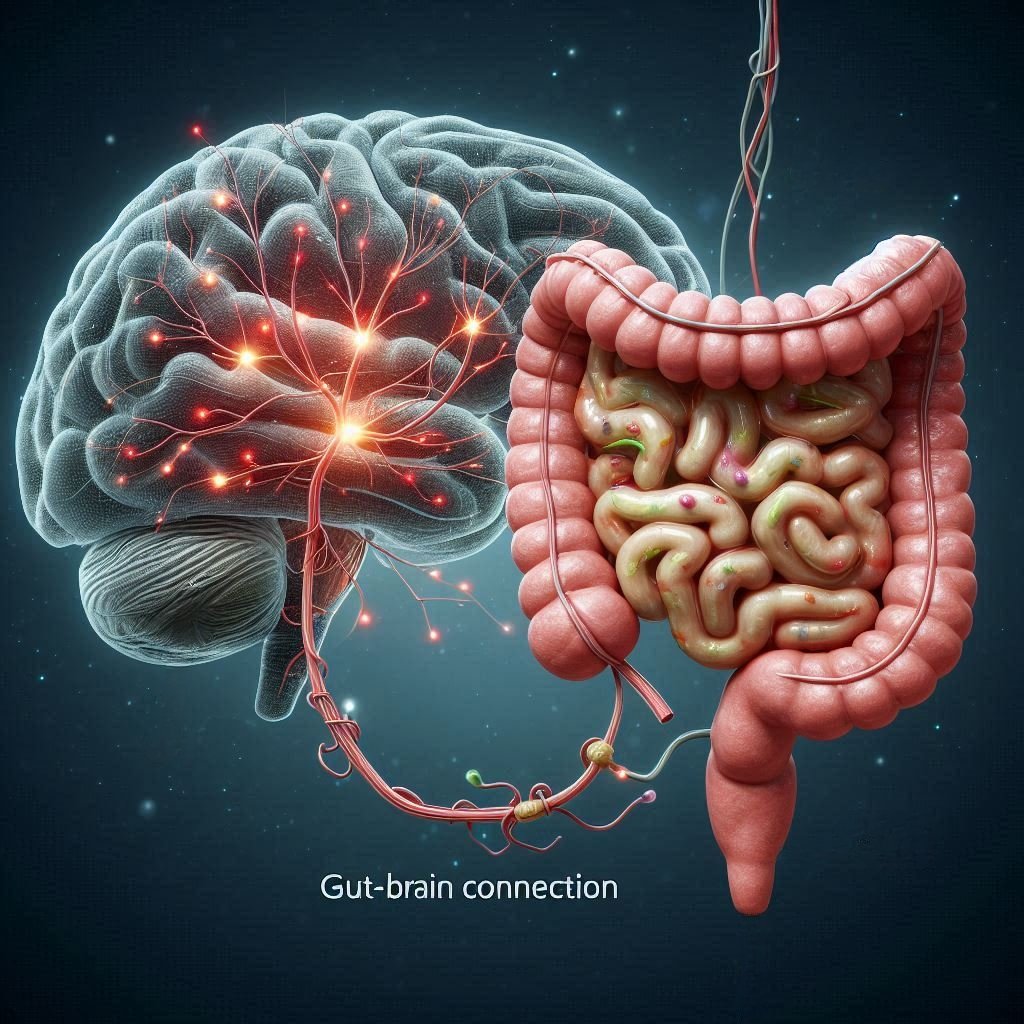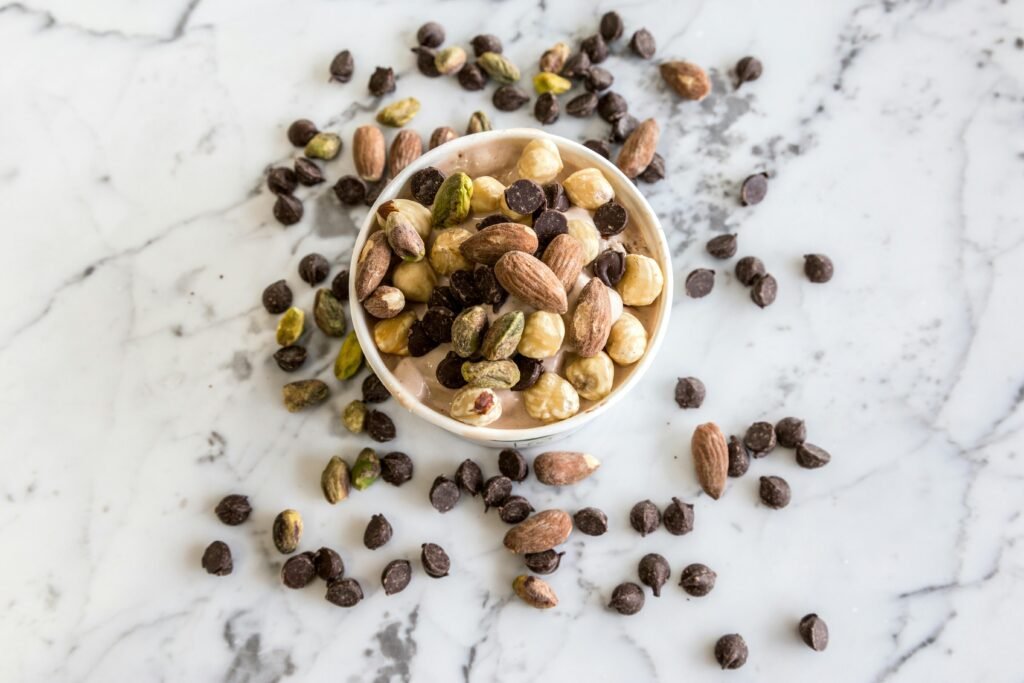Our anxiety, anger, sadness, emotions—all these feelings can be triggered by our gut. Have you ever wondered why? Have you ever felt a ‘gut-wrenching’ sensation or butterflies in your stomach? But why? A friend of mine had gastrointestinal disease, but she was physically sound. The doctor found that her disease was linked to her mental health.
That’s because our brain is directly connected with our gut, and that’s called “The Gut-Brain Connection”.
Now the question is, how are they connected?
Well, our gut-brain is mainly connected by our nerves (especially Vagus nerves) and neurotransmitters. Gut microbes are also a reason for various emotional connections between the gut and brain.
Sometimes many people feel depressed or anxious, but they are physically fine and sound. Then, why do they feel depressed or anxious? It’s because of the problem in their gut-brain connections. That’s called functional GI disorders. So, a person can experience gastrointestinal upset with no obvious physical cause. If you have ever felt gastrointestinal upset without any physical cause, then you should consult a psychiatrist.
The Gut-Brain Axis
Our gut and brain are connected through the nervous system and various chemicals. It is physically connected through nerves, mainly the vagus nerve, and biologically connected through various chemicals called neurotransmitters.
The vagus nerve: It’s the tenth cranial nerve that connects the pathway with the parasympathetic control of the heart, lungs, and digestive tract. That’s why it can regulate body functions like blood pressure, heart rate, and digestion. Our gut contains almost 500 million nerves, and those are directly connected with our brain. The vagus nerve is the main one of them, and it can connect both sides. Problems in the vagus nerve can cause various gut diseases such as Gastroparesis, IBS (irritable bowel syndrome), Crohn’s disease, low blood pressure, abnormal heart rhythm, bloating, and vomiting.
Neurotransmitters and Gut Microbes: Neurotransmitters are like chemical messengers that connect neurons and nerves. Our gut and brain are connected through various neurotransmitters. Some of them are produced in the gut, such as serotonin and GABA. Gamma-aminobutyric acid (GABA) is produced by our gut microbes, which helps control feelings of fear and anxiety. Also, microbes produce SCFAs by digesting fiber, which can reduce appetite. Microbes produce bile acid, which can reduce dietary fat and affect brain functions. Gut microbes play an important role in inflammation; however, various bacteria can cause inflammatory toxins like Lipopolysaccharide (LPS). High levels of LPS can cause brain disorders and depression, dementia.
Improve gut health to improve mental health
To improve our gut health, and also to improve our gut-brain connection, a combination of dietary and lifestyle changes is recommended.
Lifestyle Changes-
- Manage Stress: Chronic stress can negatively affect both the gut and the brain. Psychological interventions, such as cognitive behavioral therapy, can alleviate stress and its gastrointestinal manifestations, thereby improving the gut-brain axis.
- Regular Exercise: Physical activity increases the diversity and number of beneficial microbial species in the gut. This has a positive impact on the brain, potentially reducing the risk of neurodegenerative diseases.
- Adequate Sleep: Sleep is essential for the maintenance of a healthy gut microbiome. Disruptions in sleep patterns can lead to an imbalance in gut bacteria, which may affect mood and cognitive functions.
- Stay Hydrated: Adequate hydration is vital for the health of gut microbiota. Water helps in the digestion process and the absorption of nutrients, which is beneficial for both gut and brain health.
Dietary Strategies-
- Diversify Your Diet: Consuming a wide range of foods is crucial for gut health. Each type of food supports different microbial species, which in turn contribute to a robust gut microbiome. This diversity not only helps in digestion but also in producing various vitamins and fighting off harmful pathogens.
- Increase Fiber Intake: Fiber acts as a prebiotic, providing nourishment for beneficial gut bacteria. These bacteria produce short-chain fatty acids, which have been shown to support brain health and reduce inflammation. Foods rich in fiber, such as oats and nuts, are associated with improved cognitive functions like memory and mood.
- Limit Processed Foods: Highly processed foods often contain additives and sugars that can disrupt the balance of gut microbiota. By reducing their intake, you can prevent the proliferation of bacteria that might contribute to inflammation and negatively impact brain function.
- Incorporate Probiotics: Probiotics are live beneficial bacteria found in certain foods and supplements. They help maintain a healthy balance in the gut microbiota, which is linked to better immune response, metabolism, and even mental health. Probiotics have been associated with reduced symptoms of depression and anxiety.
Foods for Gut Health-
- Fermented Foods: These foods are natural sources of probiotics. For example, sauerkraut and kimchi contain live bacteria that can colonize the gut and provide health benefits. Kefir, a fermented milk product, contains a diverse range of bacteria and yeast, contributing to gut health.
- Prebiotic Foods: Prebiotics are compounds that feed beneficial bacteria. Asparagus, onions, and garlic are rich in these compounds, promoting the growth of healthy gut bacteria.
- Fruits and Vegetables: Certain fruits and vegetables, like pineapple and dandelion greens, contain compounds that aid digestion and support the gut microbiome.
- Others: Apple cider vinegar stimulates digestive juices, ginger aids in calming the stomach, and bone broth is believed to heal the gut lining.
By integrating these foods into a balanced diet and adopting healthy lifestyle practices, you can support a healthy gut microbiome, which is essential for both physical and mental well-being. Always try to choose a healthy diet, and avoid unnecessary thoughts that cause anxiety. Stay hydrated, eat healthily, and stay mentally sound.



